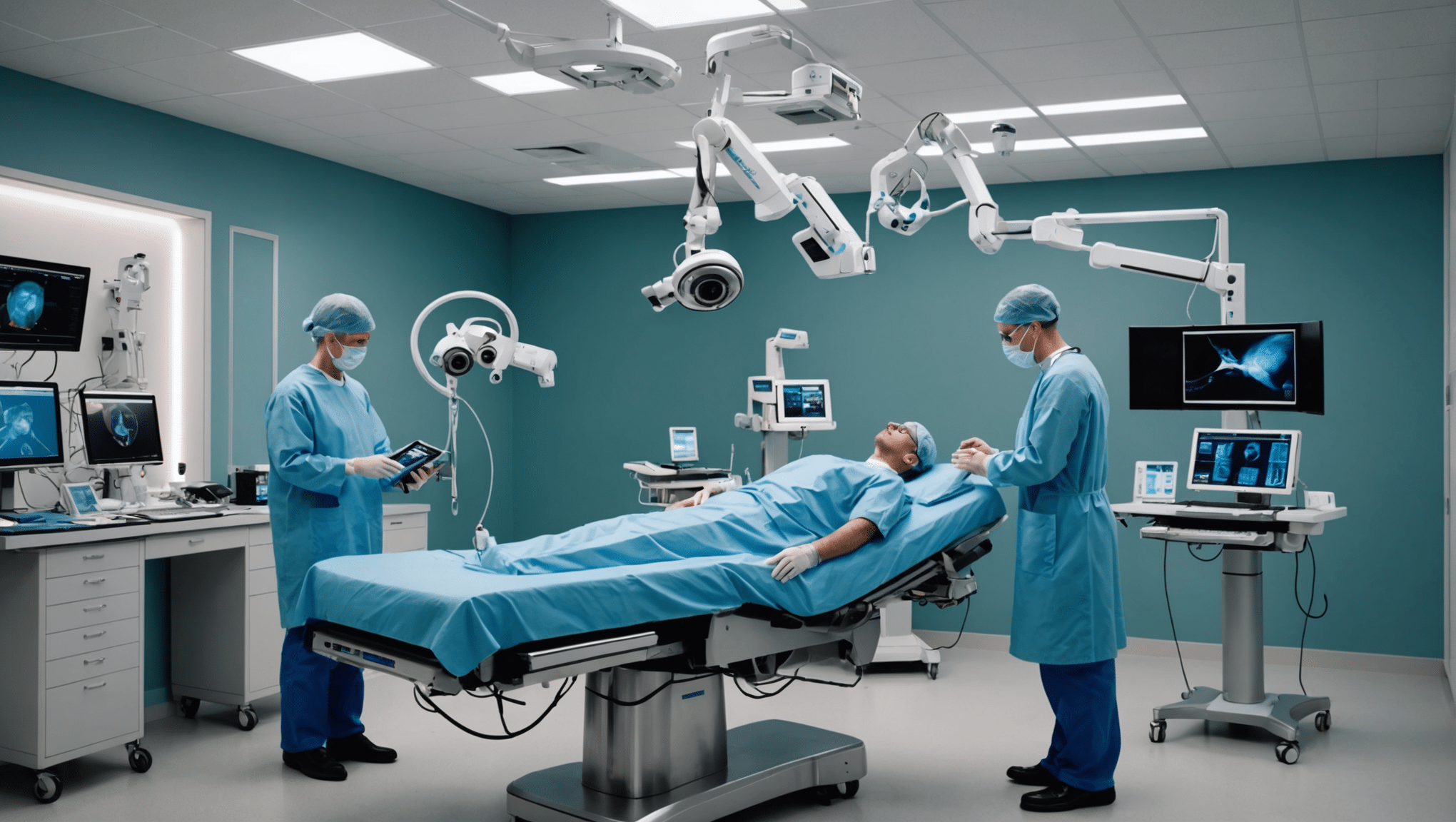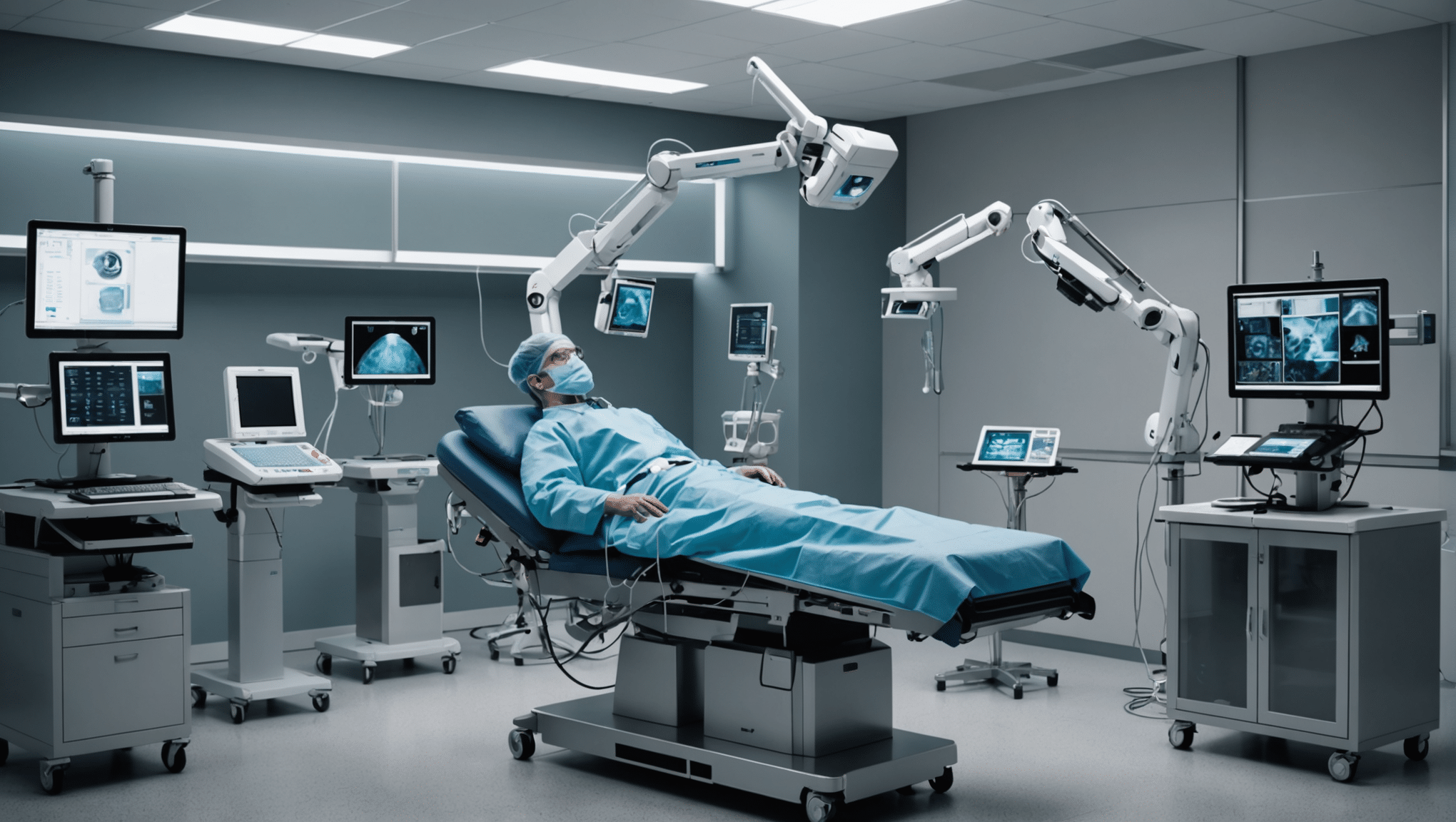Medicine is entering an era where technology is no longer limited to facilitating medical tasks, but is completely redefining the way we provide and receive care. There MedTech, or medical technology, positions itself as a real catalyst for this technological revolution in the health sector. It brilliantly combines digital advances with traditional medical practices, thus offering innovative solutions that transform care models.
Whether it is the introduction of connected devices for remote monitoring, application of theartificial intelligence to refine the diagnoses, or the development of nanotechnology for targeted treatments, MedTech innovations are paving the way for more efficient and precise care methods. Feeling the urgency to constantly improve the quality of care, this exciting industry is looking toward a future where every technical advancement has the potential to save lives. In this dynamic, MedTech is not just a sector of activity, but the incarnation of a promising future for the health of all.
MedTech: Technological revolution in the health sector
There MedTech, or medical technology, refers to all the applications of technological progress in the field of health. It plays a crucial role in transforming medical care, not only through the improvement of existing treatments, but also through the introduction of innovative processes that redefine the relationship between patients and healthcare professionals. The emergence of MedTech pushes towards a digital medicine, where artificial intelligence, biotechnology and robotics emerge as valuable allies.
A booming sector: data and trends
500 billion dollars in 2023 and projected to exceed the 700 billion dollars by 2030. This increase is fueled by growing investments in research and development, as well as public health policies that encourage the adoption of advanced technologies. For example, companies like Medtronic and Philips are leading significant initiatives to integrate technology-based solutions. digital data in their product lines.
Technologies such as connected medical devices and applications of telemedicine become essential in the monitoring and surveillance of patients. Not only do they allow better monitoring of health status, but they also reduce the risk of medical errors. A study conducted by the WHO revealed that the use of these technologies can decrease by more than 30% the rate of errors in the diagnosis and treatment of chronic diseases.
Case studies: Concrete innovations in MedTech
A striking example of the impact of MedTech is the use of surgical robotics. Systems such as the Da Vinci system have revolutionized surgery, enabling less invasive procedures with increased precision. These surgical robots assist doctors while improving patient recovery, thereby reducing hospitalization time. For example, studies have shown that patients who undergo robot-assisted surgery reduce their hospital stay by two days on average compared to traditional methods.
Another area where MedTech is working wonders is that of digital stethoscopes with artificial intelligence. These devices, recently studied, allow acoustic analysis of body noises, thus offering greater precision in the diagnosis of heart diseases. The case of ‘Eko’ digital stethoscopes, which use artificial intelligence to evaluate heart sounds, was particularly notable. Field studies have shown that they have the potential to save lives by providing early and accurate diagnosis, increasing the chances of successful treatment.
Challenges and future prospects
Despite the undeniable potential of MedTech, the industry is not without challenges. One of the main obstacles remains the regulation and the cybersecurity. With the increase in connected devices, the need to ensure the security of patient data becomes paramount. Industry players must invest not only in technological innovation, but also in robust security protocols to protect this data.
At the same time, collaboration between various healthcare players, from startups to large companies, is essential to foster a dynamic of continuous innovation. Collaborative platforms must be created to share knowledge and improve the integration of MedTech into existing health systems. As technologies advance, the sector must also be concerned with the training of healthcare professionals, who must be prepared to use these new technologies effectively.
In the future, the healthcare landscape will undoubtedly be redefined by technologies such as nanomedicine and the augmented reality, which promise to further transform the diagnosis and treatment of diseases. Tomorrow’s innovations will need to pay attention to ethics and inclusiveness to ensure that all patients can benefit from these technological advances. This globalized and thoughtful approach is essential to the construction of a medicine of tomorrow, which is both effective and respectful of the needs of each individual.
Innovations in laser therapy for the treatment of acne also illustrate how MedTech can transform dermatological treatments, by offering less invasive and more effective solutions. This is just one example among many that show that MedTech is reshaping the healthcare sector.
The issues of the MedTech, both exciting and complex, will undoubtedly see advances in areas such as biotechnology and personalization of treatments. Innovations will not be limited to physical devices; they will also extend to software that analyzes data to provide real-time recommendations. Ultimately, MedTech does not just create tools, but shapes a futuristic health ecosystem where technology and humanity combine to improve the quality of life of patients.
To support this conclusion, the efforts made by companies like Medtronic highlight the importance of continuous innovation in the field of MedTech. A momentum which, if well directed, could lead to a positive upheaval in the way health care is perceived and administered globally.

Déjà cotée à Bruxelles et Amsterdam, la medtech Onward Medical se lance à Parishttps://t.co/2GidzytI2x pic.twitter.com/VCfN6Bglb6
— BFM Business (@bfmbusiness) September 23, 2024
FAQ on Medtech and the technological revolution in the healthcare sector
What is Medtech? Medtech, or medical technology, refers to all the devices, tools and techniques used to improve the health and well-being of patients through technological advances.
How is Medtech transforming the healthcare sector? Medtech uses innovations such as artificial intelligence, telemedicine and biotechnologies to improve the quality of care, reduce medical errors and optimize communication between healthcare professionals.
What are examples of notable innovations in Medtech? Notable innovations include digital stethoscopes with artificial intelligence, robotic surgery and wearable devices for monitoring health parameters.
What impact does technology have on medical diagnosis? Technologies, such as data analytics and machine learning algorithms, enable more accurate and earlier diagnoses, increasing the chances of successful treatments.
Is Medtech accessible to all patients? High-tech medical devices are increasingly integrated into routine care, although disparities in access persist, particularly in certain geographic or socio-economic regions.
What are the concerns related to cybersecurity in Medtech? With the use of connected devices increasing, concerns are emerging about the protection of patient data and the vulnerability of systems to hacking.
What are the regulatory challenges facing Medtech? Medtech companies must navigate a complex regulatory landscape, ensuring their products meet strict safety and effectiveness standards before being brought to market.
How does Medtech influence personalized medicine? Medtech facilitates the development of tailor-made treatments, using genetic and biological data to tailor care to individual patient needs.













